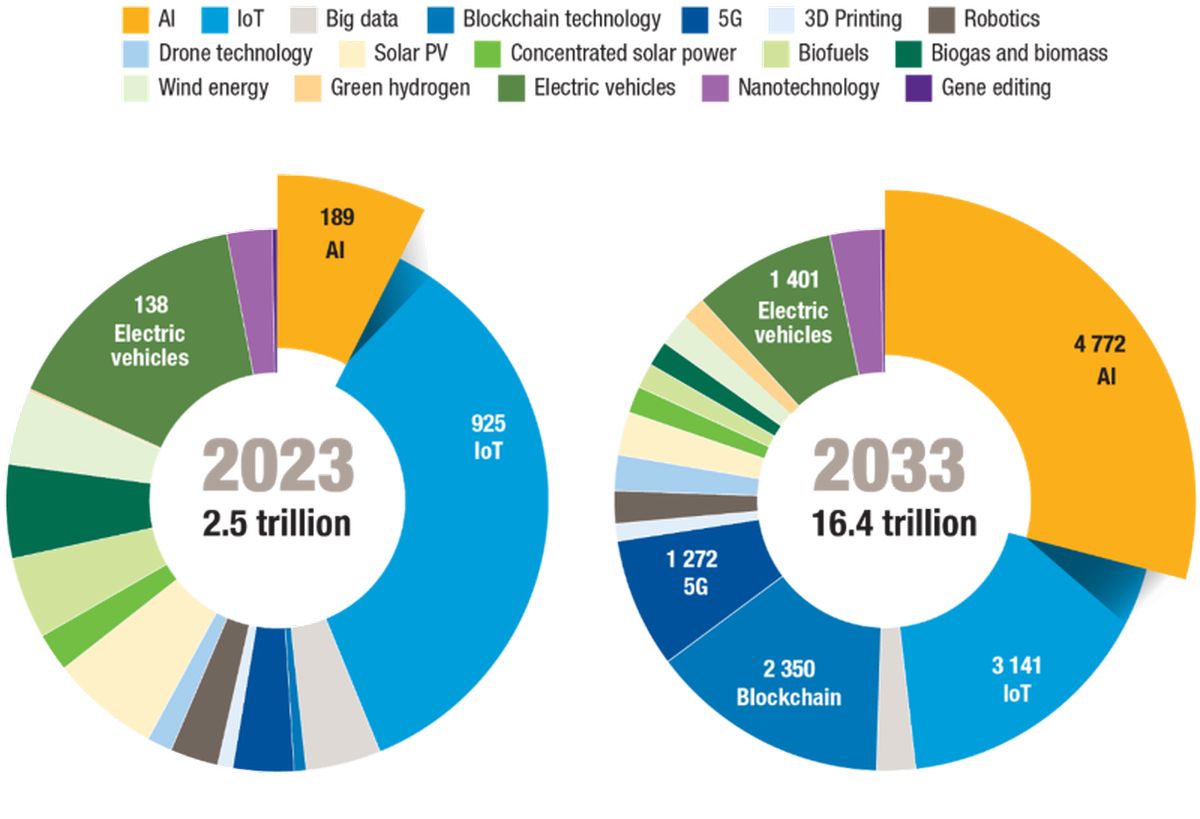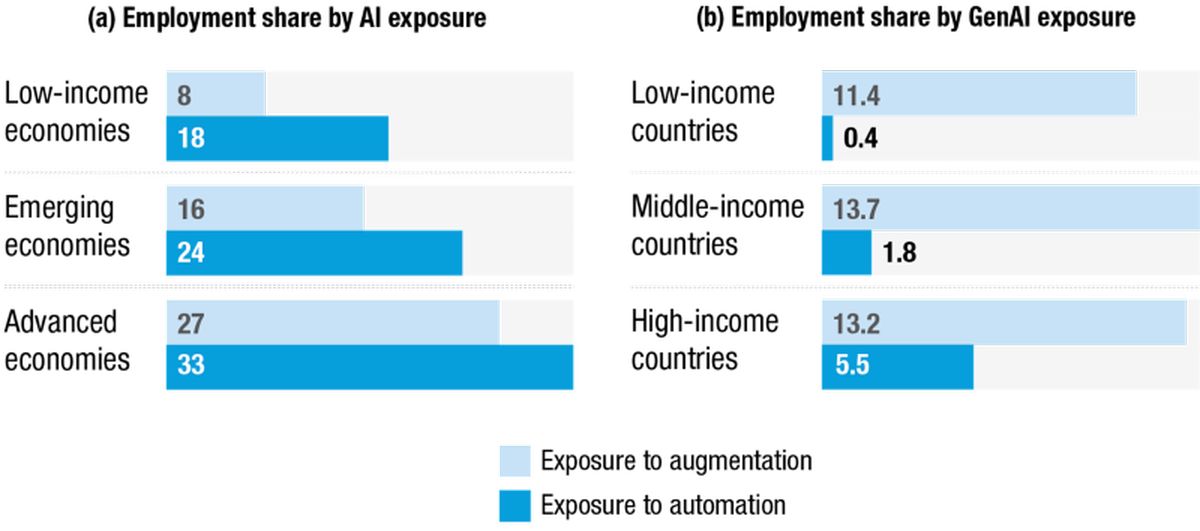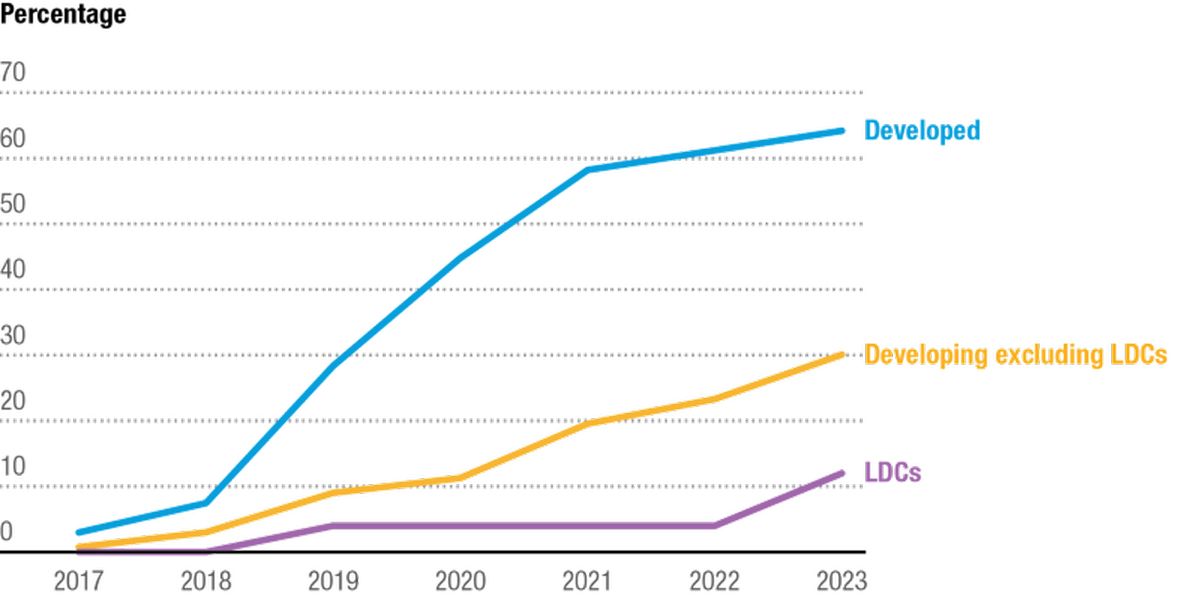UN warns AI boom could worsen global inequality and displace 40% of jobs

AI could inject $4.8 trillion into the global market by 2033, but the UN warns that the benefits of this technology remain concentrated in a few hands, potentially affecting 40% of jobs worldwide and increasing inequality between nations.
The U.N. Trade and Development agency (UNCTAD) released a report on Thursday projecting the AI market cap to equal roughly the size of Germany’s economy, while also cautioning against automation, job displacement and concentrated economic gains.
 Image: UN
Image: UN
The report suggests that AI-driven automation favors capital over labor, potentially widening inequality and reducing the competitive advantage of low-cost labor in developing economies.
The IMF issued similar warnings over a year ago, and the World Economic Forum released findings in January stating that 41% of employers plan to downsize staff in areas where AI can replicate their functions.
 Image: UN
Image: UN
UN data indicates that 40% of global corporate research and development spending in AI concentrates among 100 firms, primarily in the U.S. and China.
Tech giants that stand to gain from the AI boom, like Apple, Nvidia, and Microsoft, possess a market value rivaling the GDP of the entire African continent.
UNCTAD stated that this AI dominance at national and corporate levels could widen technological divides, leaving many nations behind, noting that 118 countries, mostly in the Global South, are absent from major AI governance discussions.
 Image: UN
Image: UN
The report suggests AI can also “create new industries and empower workers” with adequate investment in reskilling and upskilling. Developing nations must “have a seat at the table” regarding AI regulation and ethical frameworks, the report notes.
UNCTAD’s recommendations to the international community for driving inclusive growth include:
- AI public disclosure mechanism: Recommends an AI public disclosure mechanism.
- Shared AI infrastructure: Encourages shared AI infrastructure.
- Use of open-source AI models: Supports using open-source AI models.
- Knowledge and resources initiatives: Calls for initiatives to share AI knowledge and resources.
The report concludes that strategic investments, inclusive governance, and international cooperation are crucial for ensuring AI benefits all and doesn’t reinforce existing divides. Open-source code is made freely available on the web for possible modification and redistribution.
